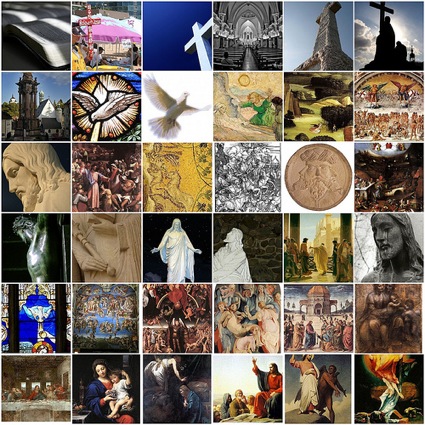Is Christianity a philosophy, full of reasoning, trying to logically answer all the big questions, with most activity centered around the literary criticism of a collection of old Hebrew and Greek writings?
Is Christianity a mystic faith, trusting in invisible, immortal things and reaching out beyond the imagination to a transcendent creator, savior, and source of life?
You know, before Christianity, these things were like oil and water. Unbelievers today are very much post-Christian in the sense that they will often combine these two things, philosophy and mysticism, and go on their merry way. But these only kissed in A.D. 33 with the resurrection of the Son of God and subsequent founding of his church.
They became orthodoxy. Like long-lost brothers, they found each other when their father reunited them as part of his redemption of mankind. When they still seem to oppose to each other today, it is like close siblings fighting over the Tonka truck in the sandbox, not as bitter enemies defending the borders of their nation.
The substance of all such paganism may be summarised thus. It is an attempt to reach the divine reality through the imagination alone; in its own field reason does not restrain it at all. It is vital to view of all history that reason is something separate from religion even in the most rational of these civilisations. It is only as an afterthought, when such cults are decadent or on the defensive, that a few Neo-Platonists or a few Brahmins are found trying to rationalise them, and even then only by trying to allegorise them.
This is to say that there was no systematic theology of Zeus. The pagans did not try to rationalize the gods. In fact, it was important not to.
But in reality the rivers of mythology and philosophy run parallel and do not mingle till they meet in the sea of Christendom. Simple secularists still talk as if the Church had introduced a sort of schism between reason and religion. The truth is that the Church was actually the first thing that ever tried to combine reason and religion. There had never before been any such union of the priests and the philosophers.
-G.K. Chesterton, The Everlasting Man, p.123

